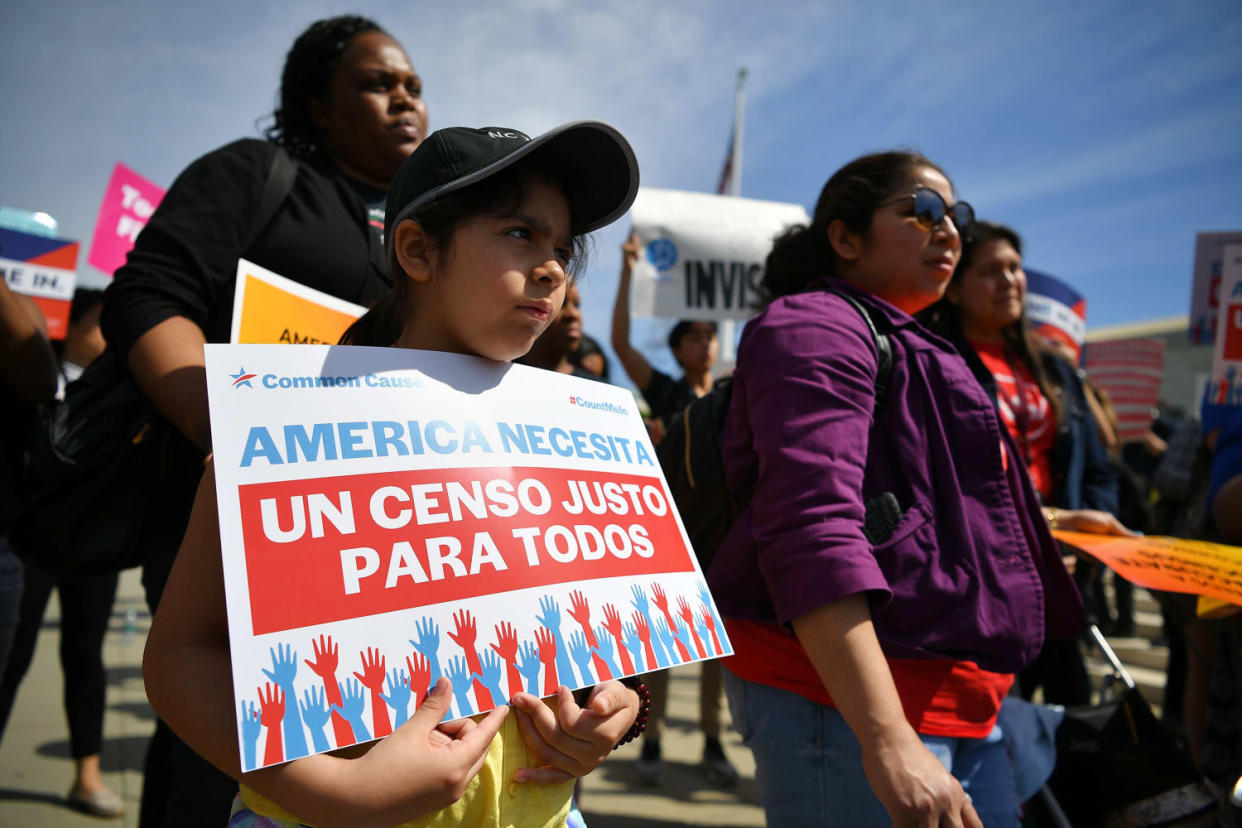Supreme Court throws out challenge to Trump census plan to exclude undocumented immigrants
The U.S. Supreme Court on Friday dismissed a challenge to President Donald Trump’s plan to leave undocumented immigrants out of the final census count, giving the president a partial victory, though possibly a temporary one.
By a 6-3 vote, the court said too much is unknown about whether the administration can even carry out the plan and about what effect it would have on the states.
“This case is riddled with contingencies and speculation,” the court said in a short, unsigned opinion, referring to the states' challenge to Trump's plan. “The policy may not prove feasible to implement in any manner whatsoever.”

The census, required by the Constitution and conducted every 10 years, is used to determine how many members of Congress each state gets in the House of Representatives. The data is also used to calculate a local government's share of $1.5 trillion in funds under many federal programs.
As a legal matter, the president could now try to carry out his plan, but the states would undoubtedly come right back and challenge it.
Dale Ho, of the American Civil Liberties Union, who represented the challengers before the Supreme Court, said the decision is only about timing.
"The legal mandate is clear: Every single person counts in the census, and every single person is represented in Congress," Ho said. "If this policy is ever actually implemented, we'll be right back in court challenging it."
In a post on Twitter, he added, "If the administration actually tries to implement this policy, we'll sue. Again. And we'll win."
In July, Trump issued a memo that said people who are undocumented should not be included in the final count. Under his plan, the Census Bureau would report two sets of figures to the White House: one including everyone counted and another allowing him to leave out undocumented immigrants. The president could then report the smaller number to Congress for use in reapportionment.
A group of states led by New York sued to block the plan, saying it would shift money and political power away from states with large immigrant populations and would violate the Constitution and federal law. Justices Stephen Breyer, Sonia Sotomayor, and Elena Kagan said enough is known about the plan to render it unconstitutional.
The court said it's clear that the government could not possibly exclude the estimated 10.5 million undocumented immigrants in the U.S., but said the evidence presented by the states challenging the policy "unrealistically assumed that the president will exclude the entire undocumented population."
The court's majority opinion said it was expressing no view on whether the policy would be unconstitutional.
The dissenting justices said the court should have decided the case. They said it was clear that undocumented immigrants cannot be excluded from the census because the Constitution requires the census to include a count of "the whole number of persons in each state."
Writing for the three dissenters, Breyer said, "Where, as here, the government acknowledges that it is working to achieve an allegedly illegal goal, this court should not decline to resolve the case simply because the government speculates that it might not fully succeed.”
Under federal law, the Census Bureau must report the figures to the president by the end of December, but it has already said it will miss that deadline.
